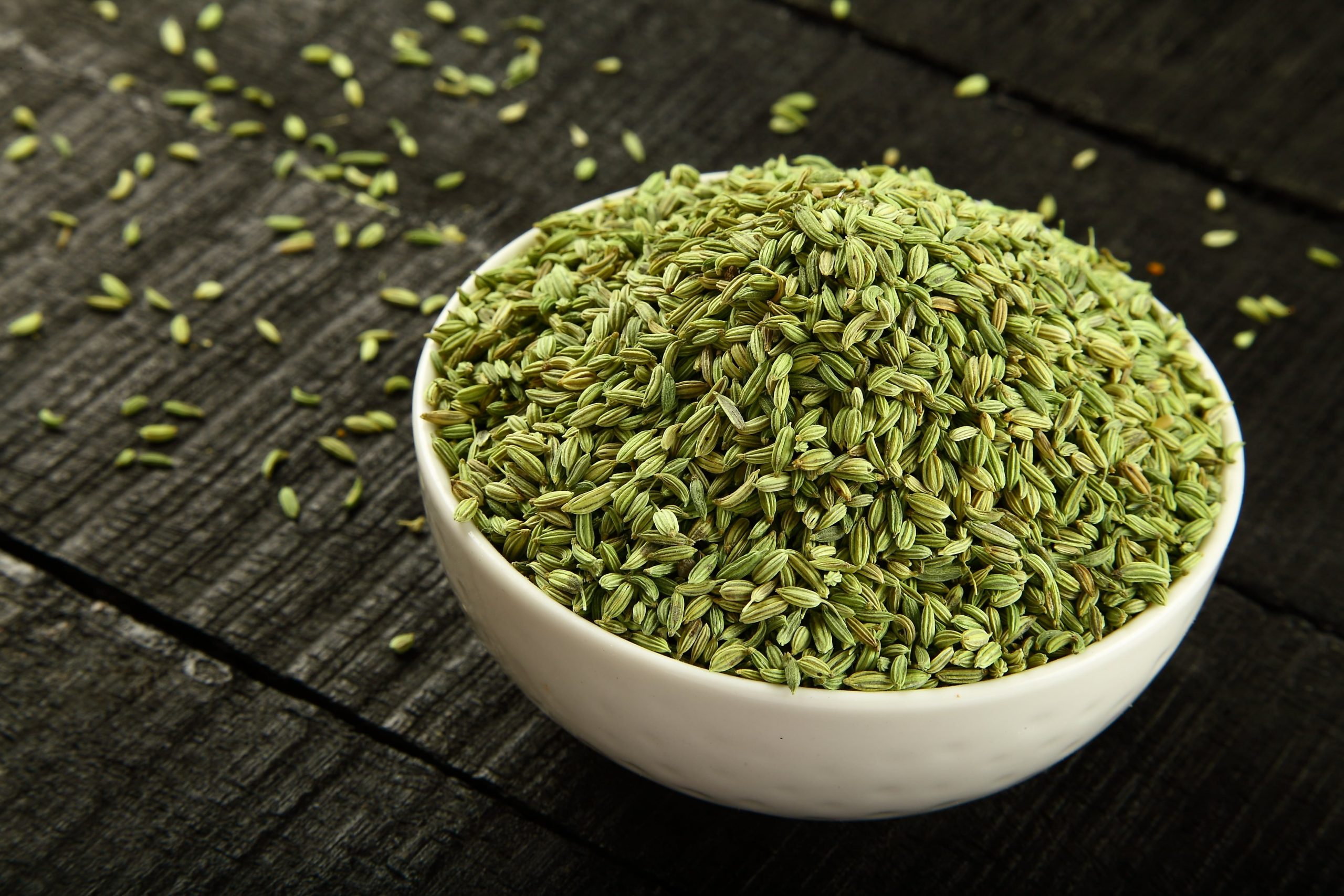Fennel seeds are either pale green or brown and have a sweet taste. They are rich in fiber and can help with digestive issues.
Among the seeds with numerous potential benefits are from the fennel plant, which is indigenous to the Mediterranean shores. You can use the seeds in their dried state or powder. Moreover, you can purchase the supplements too. One important component of these seeds is their oils. To discover more about them, how you can incorporate them into your food or tea, the potential health benefits, and the side effects, please keep reading.
What is Fennel?
Fennel, also referred to as Foeniculumvulgare, is one of the several plant species in the carrot family, which is native to the Mediterranean shores. Its flowers are yellow in color, while the leaves are feathery. You can now find it occurring naturally in areas with dry soil on riverbanks or sea coasts in different parts of the world.
This plant has both medicinal and culinary uses and numerous benefits, as you will later learn.
What Are Fennel Seeds?
These are long, pale green or brown seeds of the fennel plant. They have a sweet taste similar to that of licorice. These are some of the different parts of the fennel plant that many people use. Besides, you can use them in their dried or powdered state.
There are different health benefits associated with fennel seeds; that is why people take them after meals by either chewing them plain or consuming the sugar-coated ones. If you have digestive issues or would want to reduce gas, you can try these seeds.
Nonetheless, these seeds are fiber-packed, meaning that once you take them, they can help with constipation. The seeds’ anti-inflammatory and antimicrobial properties have other amazing benefits, as you will later find out. The number of fats in these seeds is also higher than that you find in the plant itself. Therefore, when you want to add it to your recipe, a tablespoon will be enough.
So, how can you use these seeds?
How Can You Use Fennel Seeds?
At times, you might want to get the benefits of these seeds but have no idea how to use them. If so, worry no more. You can incorporate them in your tea or foo in any of the following ways;
- Wholly ground or crush the seeds before adding them to your tea or before you start cooking your food to get the most out of its oils and flavor.
- Pour hot water over a teaspoon of crushed fennel seeds.
- If you are a fan of baked goods, add 1 tablespoon of fennel seeds to your batter.
Other than using these seeds in your food or tea, you can get them in the form of supplements too, which you can buy either from a store or online.
Potential Health Benefits of Fennel Seeds
The following are some of the potential health benefits you will receive from consuming fennel seeds;
Contain Plant Compounds
Can Improve Your Heart Health
Fennel seeds may be beneficial to your heart in numerous ways. This is because of their fiber content, which is associated with a reduction in the level of cholesterol, which is linked to heart disease.
Generally, consuming meals that are rich in fiber help reduce your chances of developing a heart condition.For instance, taking 7 grams of fiber daily reduces your risk of developing heart disease by 9%. Therefore, why not incorporate these seeds into your tea or food for this benefit?
Additionally, these seeds have essential minerals such as calcium, potassium, and magnesium, which are helpful for a healthy heart.
Contain Antioxidants
These are among the major components of the seeds that are beneficial to your health. For instance, the essential oil has more than 87 compounds, such as polyphenol antioxidants.
According to available studies, if you take a diet containing these antioxidants, you will lower your chances of developing cancer, obesity, heart disease, and type 2 diabetes. Besides, the fennel seeds have 28 compounds, e.g., anethole, and limonene which can help protect your cells from damage.
Contains Antibacterial Properties
According to studies, these seeds have antibacterial properties that help prevent the growth of bacteria and yeast that may be harmful to your health. Examples include Candida albicans.
Can Help Fight Inflammation
If you have swelling, fennel seeds might help soothe it. Therefore, since they can help with inflammation, you can give them a try to help reduce irritation.
May Help Curb Appetite
Adding fennel seeds to your food gives you the flavor and also helps in containing your appetite. According to one study, those who took the seeds before having lunch tended to feel less hungry. The result is that they took fewer calories.
Therefore, if you have been wondering about a way to suppress your appetite, fennel seeds got you covered.
Side Effects
As much as the oils in the fennel seeds are natural, they contain powerful chemicals that may lead to side effects. Research conducted on mice showed that these seeds have the potential of raising their female hormones. However, there is no clear evidence that is conducted on humans to support this. What’s more, the specific required amount you should consume is not yet clear.
Moreover, some consumers might experience allergic reactions when they take fennel seeds. Therefore, more research and study still need to be conducted on the seeds to get clear evidence.
Conclusion
Fennel seeds have numerous benefits. You can have them as a whole or in powder form. The good thing is, you can use them in different ways; incorporating them into your diet doesn’t have to be a hassle. When you do this, you can benefit from the high fiber content. However, since there may be some side effects associated with its intake, it is important for certain individuals such as pregnant women and breastfeeding mothers to first consult with their doctors before taking the seeds. What’s more, before you purchase the supplements, ensure you talk to a trusted health professional.
- WHY CAN DRINKING ALCOHOL TRIGGER ANXIETY? - January 7, 2023
- WHAT IS ORGASMIC MEDITATION? BENEFITS + HOW TO - January 7, 2023
- THE BEST WAYS TO PREVENT WEIGHT GAIN THIS WINTER - January 6, 2023









